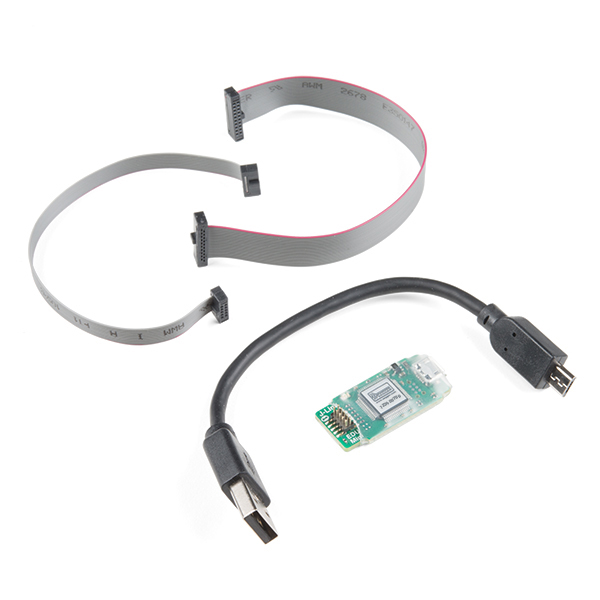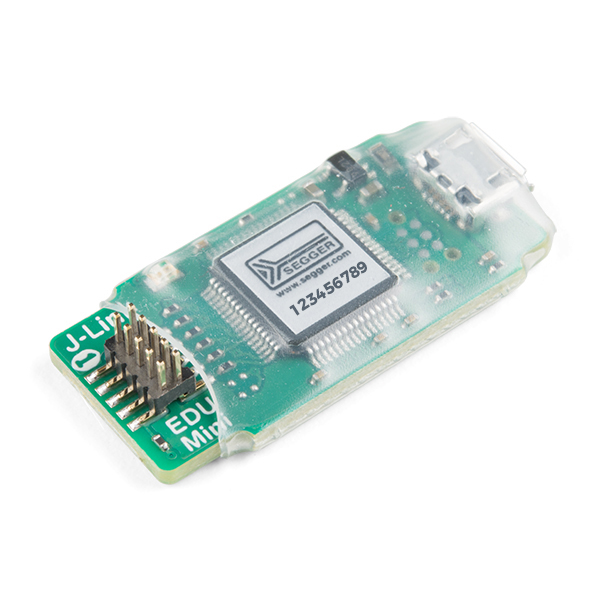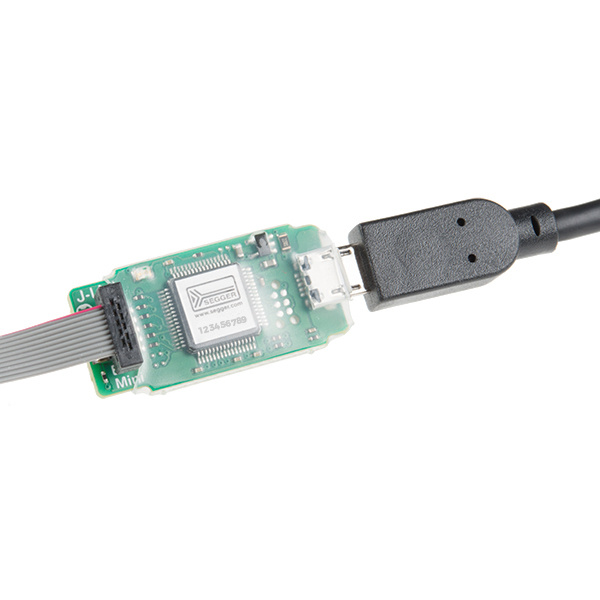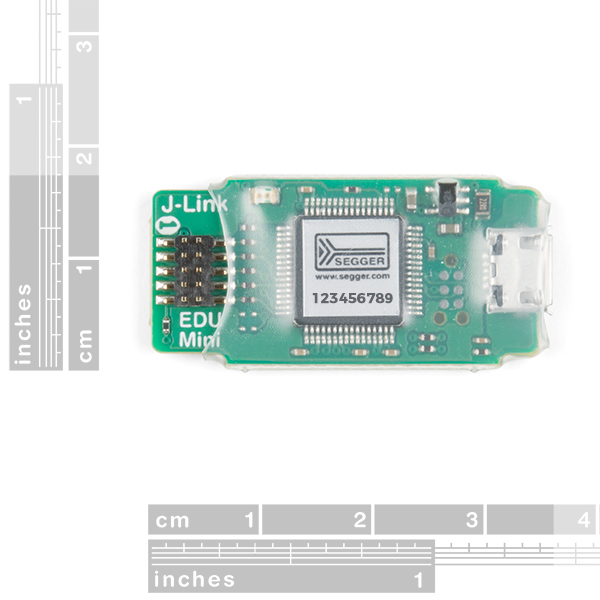J-Link EDU Mini Programmer
The J-Link line of JTAG programmers from Segger is well known for their top of the line debuggers. The J-Link EDU Mini is a great option for those getting started with JTAG/SWD programming and debugging. Each J-Link EDU Mini is a version of the J-Link EDU Base in a reduced form factor with identical functionality for Cortex-M based targets. It has been designed to allow students and educational facilities as well as hobbyists access to top of the line debug probe technology.
With a microB USB port on one end, and a 2x5 SWD connector on the other end, just plug in the included cable and connect to your favorite ARM board to get started.
Note: This unit is for Educational and Home Hobby Use Only. Please be sure that you agree to these terms before purchasing: Terms of use. If you require commercial use, please check out our related products for other programmers such as the J-Link BASE Compact.
- J-Link EDU Mini
- 0.05" 20-pin ribbon cable
- 0.05" 10-pin ribbon cable
- MicroB USB cable
- Unlimited Breakpoints
- Free Software updates
- Supports concurrent access to CPI by multiple applications
- Crossplatform support (Windows, Linux, macOS)
- Linux and Mac versions are limited to J-Link Commander, command line GDBServer, shared library (DLL equivalent)
- Size: 35mm x 17mm x 8mm
- Weight: 5g
- Target interface voltage (3.3V)
- JTAG speed: Max 4MHz
- SWO sampling frequency: Max 4MHz
- Data input rise time and fall time: <=20ns
- Data output rise time and fall time: <=10ns
- Clock rise time and fall time: <=10ns
J-Link EDU Mini Programmer Product Help and Resources
nRF9160 Thing Plus Hookup Guide
May 6, 2021
Getting started with the nRF9160 from Circuit Dojo and SparkFun!
Core Skill: Programming
If a board needs code or communicates somehow, you're going to need to know how to program or interface with it. The programming skill is all about communication and code.
Skill Level: Competent - The toolchain for programming is a bit more complex and will examples may not be explicitly provided for you. You will be required to have a fundamental knowledge of programming and be required to provide your own code. You may need to modify existing libraries or code to work with your specific hardware. Sensor and hardware interfaces will be SPI or I2C.
See all skill levels
Core Skill: Electrical Prototyping
If it requires power, you need to know how much, what all the pins do, and how to hook it up. You may need to reference datasheets, schematics, and know the ins and outs of electronics.
Skill Level: Rookie - You may be required to know a bit more about the component, such as orientation, or how to hook it up, in addition to power requirements. You will need to understand polarized components.
See all skill levels
Comments
Looking for answers to technical questions?
We welcome your comments and suggestions below. However, if you are looking for solutions to technical questions please see our Technical Assistance page.
Customer Reviews
5 out of 5
Based on 1 ratings:
Thx for such great tool so cheap for hobbyist
It s nice to see company allowing hobbyist to use professional tool for so cheap.





Must have item!!!